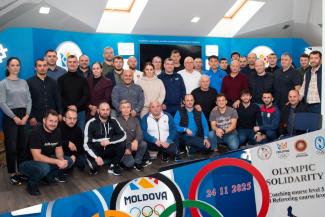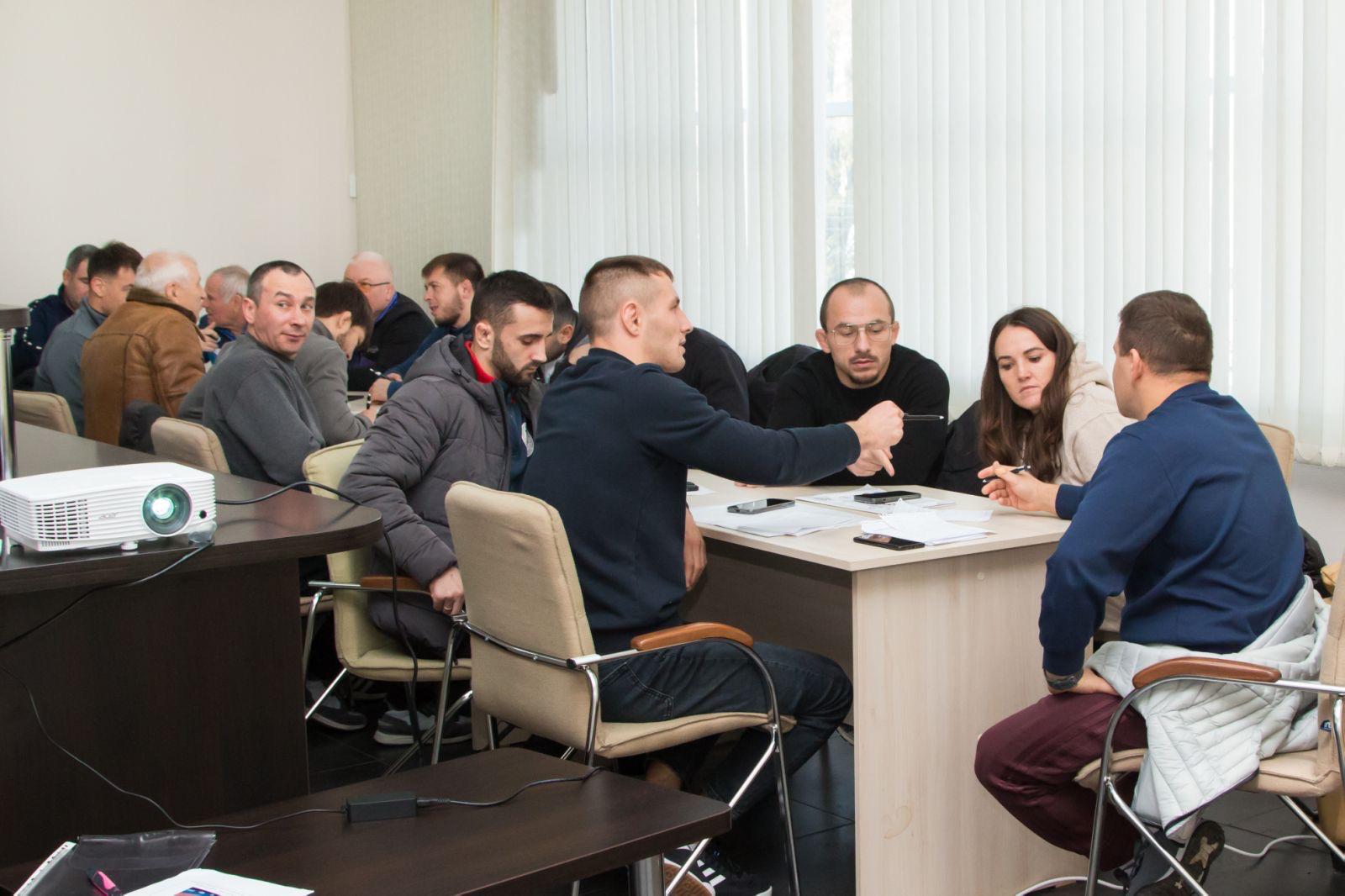UWW level 1 Coaching Course: Georgia Launches the Foundations of Women's Wrestling
Thursday, December 9, 2021 - 15:05 By United World Wrestling Press

BORJOMI, Georgia (December 9) --- Thanks to the support of Olympic solidarity via the Georgian National Olympic Committee, the Georgian Wrestling Federation hosted United World Wrestling's Level 1 coaching course for women's wrestling from November 11-14. The coaching course took place at the Borjomi Olympic Centre and was delivered by two UWW educators, Vincent AKA and Edisher MACHIDZE.
This coaching course follows various programs already launched by the Georgia Wrestling Federation to support women's wrestling. It's aimed to change the mentality of wrestling coaches regarding women's wrestling. The training course has already brought a new approach to the practice of women's wrestling.

After the course, at the closing ceremony, all the participants received a United World Wrestling coach certificate of participation Level 1.
After the end of the training, Coach NINA SERGO said, "Of course I am a Greco Roman wrestling trainer, but now I could better apprehend the arrival of a girl in my club." He is already ready to welcome them, which is a big step!
During the training, 15 male coaches and one female coach took part, the specificity of women's wrestling was discussed/ In this case, how we train women. UWW Level 1 training standards were discussed while emphasizing safety, the playful approach to wrestling, first aid and injury prevention.

The refereeing modules closed the training where coaches were put in refereeing situations. This has helped some coaches realize that refereeing is not as easy as it seems.
Exceptionally, when Samkhardze Tamuna became the first UWW Level 1 woman coach in a country where the practice of women's wrestling is primarily reserved for men. The Chairman of the Georgian National Olympic Committee, following discussions with the United World Wrestling Development Officer, gave his full support for the development of women's wrestling in Georgia.



Share your thoughts.
Comments